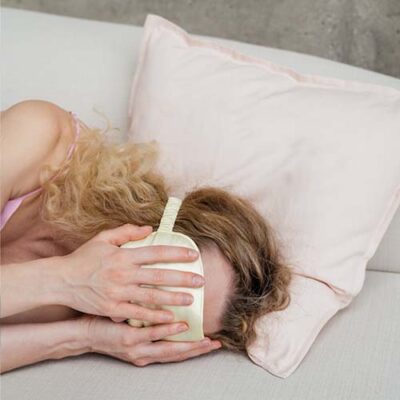
The Beginner’s Guide To Alcohol Detox

Alcohol detox is a part of a therapeutic process that helps treat Alcohol Use Disorder (AUD). AUD can range from mild to severe. Treating AUD depends on where one falls on this range.
Mild AUD means the body has not developed a strong dependence on alcohol. That is, alcohol toxicity levels are low. On the higher scales, the body has developed a strong dependence on alcohol, which translates into high toxicity levels.
Alcohol detox aims to bring this toxicity down and help the body return to normal functioning without alcohol. While alcohol detox is not sufficient to recover from addiction by itself, it plays an important role in helping an individual overcome AUD.
Table of Contents:
When does one need alcohol detox?
If a person needs alcohol to feel normal, they probably need alcohol detox.
Why is this?
AUD develops when the body gradually substitutes its normal processes for alcohol-dependent processes. When this happens, the body thinks alcohol is a normal and required substance for it to function correctly.
At this stage, depriving the body of alcohol causes withdrawal symptoms, a clear indication that a person needs alcohol detox treatment.
The Stages Of Alcohol Detox
When a person starts their AUD treatment, they can expect to go through two stages of alcohol detox – the acute withdrawal stage and the post-acute withdrawal stage.
This stage begins within hours of ceasing alcohol consumption. Alcohol levels in the brain start to fall steeply. Since the body is used to regular high doses of alcohol, its response is usually swift and brutal.
At this point, the individual may experience mild to severe alcohol detox symptoms that last from a few days to weeks, depending on the severity of the condition. Individuals are most vulnerable at this stage and often need medication and social support to overcome these symptoms.
The post-acute withdrawal stage occurs months after the initial stage is over, and the body is fully detoxified. During this stage, the AUD treatment program switches from managing withdrawal symptoms to helping the individual resume normal post-alcohol life.
Although most of the severe withdrawal symptoms may be over, emotional, mental, and psychological symptoms may persist. If these symptoms are acute or chronic in nature, it may be necessary to continue medical treatment and therapy to reach a full and lasting recovery.
Alcohol Withdrawal Symptoms
Alcohol withdrawal symptoms range from mild to severe and life-threatening. They develop when the body, which has become accustomed to alcohol (high levels of alcohol toxicity), suddenly has no alcohol. Since alcohol causes physical changes in the brain, ceasing intake throws the brain and body into chaos.
As the body starts the detox process, the following mild symptoms may occur:
- Anxiety
- Nausea
- Insomnia
- Headache
- Sweating
- Shaky hands
- Tremors
More severe withdrawal symptoms, occasioned by a stronger dependence on alcohol, may include:
- Delirium tremens (DT)
- Audiovisual hallucinations
- Delusions
- Hypertension
- Seizures
- Heart failure
- Depression
Collectively, these alcohol withdrawal symptoms may last from a few days to a few weeks.
However, more persistent non-detox symptoms may stay on for months or years after full detox is achieved.
Long-term, persistent symptoms may include:
- Anxiety and panic attacks
- Insomnia
- Mood-swings
- Irritability
- Depression
- Lack of appetite
- Restlessness
- Social isolation

Learn more:
What To Expect From The Alcohol Detox Process
Alcohol detox treatment often requires medical supervision. As such, most alcohol detox treatment programs have the following three steps:
Step 1: Intake
The doctor performs a comprehensive review covering details related to drug, psychiatric, psychological, and medical histories. This process helps create a patient treatment profile, which will inform the best treatment methods to use.
Step 2: Medication
The doctor may prescribe medication to help manage or reduce alcohol detox symptoms. The drugs may also be used to treat any concurrent disorders the individual may have.
Step 3: Stabilization
Using a combination of medical and behavioral therapies, the doctor stabilizes the patient for resumption of normal life. This step aims to help the individual regain a balance of body and mind to prepare them for a recovery that lasts.
The Alcohol Detox Timeline
Different people experience the alcohol detox process differently. For some, symptoms may be mild and transient; for others, they may be severe and persistent. Despite this, the detox process generally follows this timeline:
In the first six hours, few individuals experience any noticeable symptoms. For those who do, they may come after two hours and include a mild headache, mild anxiety, mild irritability, and some nausea.
After six hours, symptoms that were previously mild become more pronounced. The slight headache, nausea, anxiety, and irritability become progressively worse.
At the 24-hour mark, current withdrawal symptoms start to peak in severity. Other more severe symptoms like tremors, confusion, and seizures also set in.
Day two of alcohol detoxification is characterized by the same symptoms from day one. Also, individuals may experience delusions, hallucinations, and panic attacks.
The next four days have the same symptoms from the previous days, although they may come and go. This is also the stage when delirium tremens (DTs) can set in. DTs are characterized by profound confusion, vivid hallucinations, disorientation, extreme cardiovascular disturbances, and hyperactivity.
One week into detox, most detox symptoms begin subsiding. Although not all symptoms will completely disappear, those that remain are usually mild and respond well to medication.
Medication Used During Alcohol Detox
The medications used during alcohol detox help reduce the severity of withdrawal symptoms. They are also used to help regulate the body’s chemical balance and prevent detox-related complications. When used, the individual undergoing detox experiences milder symptoms, giving them a better chance of successfully completing the entire process.
Alcohol detox medications fall into two categories:
- Medications for alcohol withdrawal symptoms
- Medications for alcohol detoxification
Medications for alcohol withdrawal symptoms
Medications for alcohol withdrawal symptoms mimic the effects of alcohol on the brain. They are helpful because they avoid alcohol’s addictive tendencies while helping to wean the brain off alcohol gradually. These medications primarily include benzodiazepines and barbiturates.
Benzodiazepines
Benzodiazepines are sedative drugs that have the same sedating effect on the brain that alcohol does. When prescribed during alcohol detox, they bind to the same receptors in the brain that alcohol does. This helps the brain cope with the lack of alcohol while reducing problematic detox symptoms like anxiety, insomnia, and hallucinations.
Benzodiazepines for alcohol detox include:
- Chlordiazepoxide
- Diazepam
- Clorazepate
- Oxazepam
Barbiturates
In cases of benzodiazepine-resistant alcohol withdrawal symptoms, barbiturates may be used. Barbiturates are also sedatives but act on the central nervous system (CNS). Since the CNS controls vital body functions like breathing, barbiturates can cause sedative death. As such, they are only used in emergency alcohol detox settings under strict medical supervision.
Medications for alcohol detoxification
Medications for alcohol detoxification help with recovery programming. When taken, they help change or influence various body functions that support alcohol addiction. They include disulfiram, naltrexone, and acamprosate.
Disulfiram
Disulfiram is an aversive reaction drug that produces unpleasant side effects when alcohol is consumed, even in small quantities. Some of the reactions include anxiety, nausea, vomiting, blurred vision, and sweating. Disulfiram is prescribed to help break the habit of taking alcohol and, in so doing, reduce body alcohol toxicity levels.
Naltrexone
Naltrexone helps promote alcohol abstinence. Individuals using the drug report a reduced urge or desire to take alcohol. It is not fully understood how the drug accomplishes this.
Acamprosate
Acamprosate modulates the excitatory and inhibitory neurotransmitters affected by alcohol. In doing so, the drug helps restore balance to a system that plays a vital role in the central nervous system.
Diet For Alcohol Detox
Diet is an essential part of any alcohol recovery program. A healthy diet with regular mealtimes can help stabilize your mood and encourage overall improved health.
Your diet should include:
- Nutritious meals and snacks
- Regular mealtimes
- Reduced caffeine intake
- Low-fat foods
- Protein
- Complex carbohydrates and fiber
- Vitamins and other dietary supplements as recommended by your physician
In addition to these, it’s important to drink plenty of water and stay hydrated to help you through the detox process.

The Dangers Of Alcohol Self-Detox
Self-detoxing or going cold turkey can lead to severe consequences, especially in long-time alcohol abusers.
Choosing to detox alone may lead to some or all the following symptoms:
- Delirium tremens (DT)
- Seizures
- Aspiration pneumonia
- Heart arrhythmias
- Anxiety
- Kidney or liver dysfunction
- Insomnia
- Headache
- Depression
- Extreme nausea
- Hallucinations
- Fever
- Intense cravings
- Death
Safe Alcohol Detox At Home With Elite Home Detox
Working with a professional and qualified alcohol detox partner like Elite Home Detox can help an individual undertake their detox journey safely avoid the potentially-dangerous symptoms of alcohol withdrawal. Also, because sometimes an individual may not want to go into a facility for detox, Elite Home Detox offers flexible in-house alcohol detox treatment and support services.
Our program gives the individual ongoing medical support while not requiring them to conform to a set schedule. To find out more about Elite Home Detox in-home alcohol detox and addiction recovery, contact us today to speak with a knowledgeable representative.


